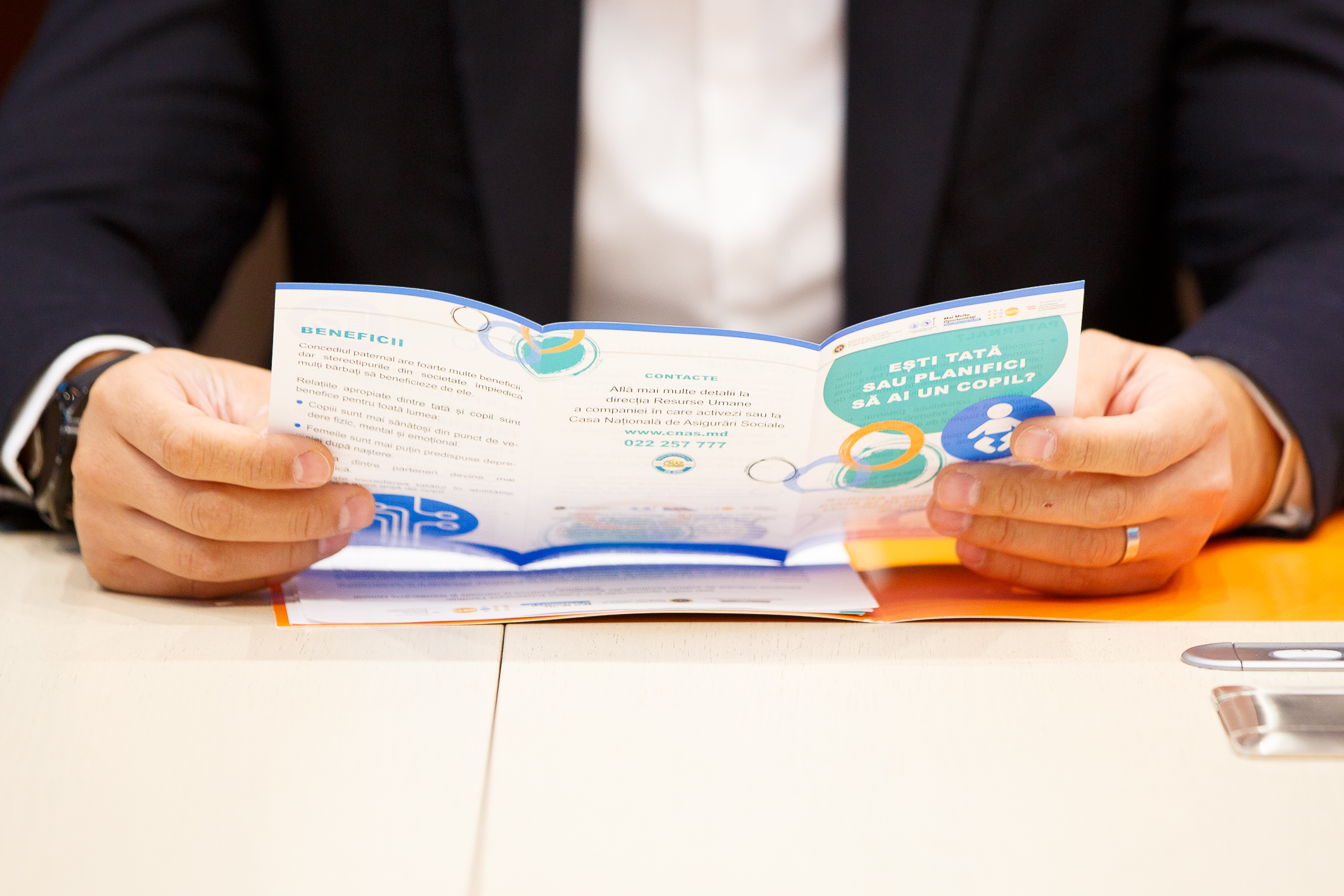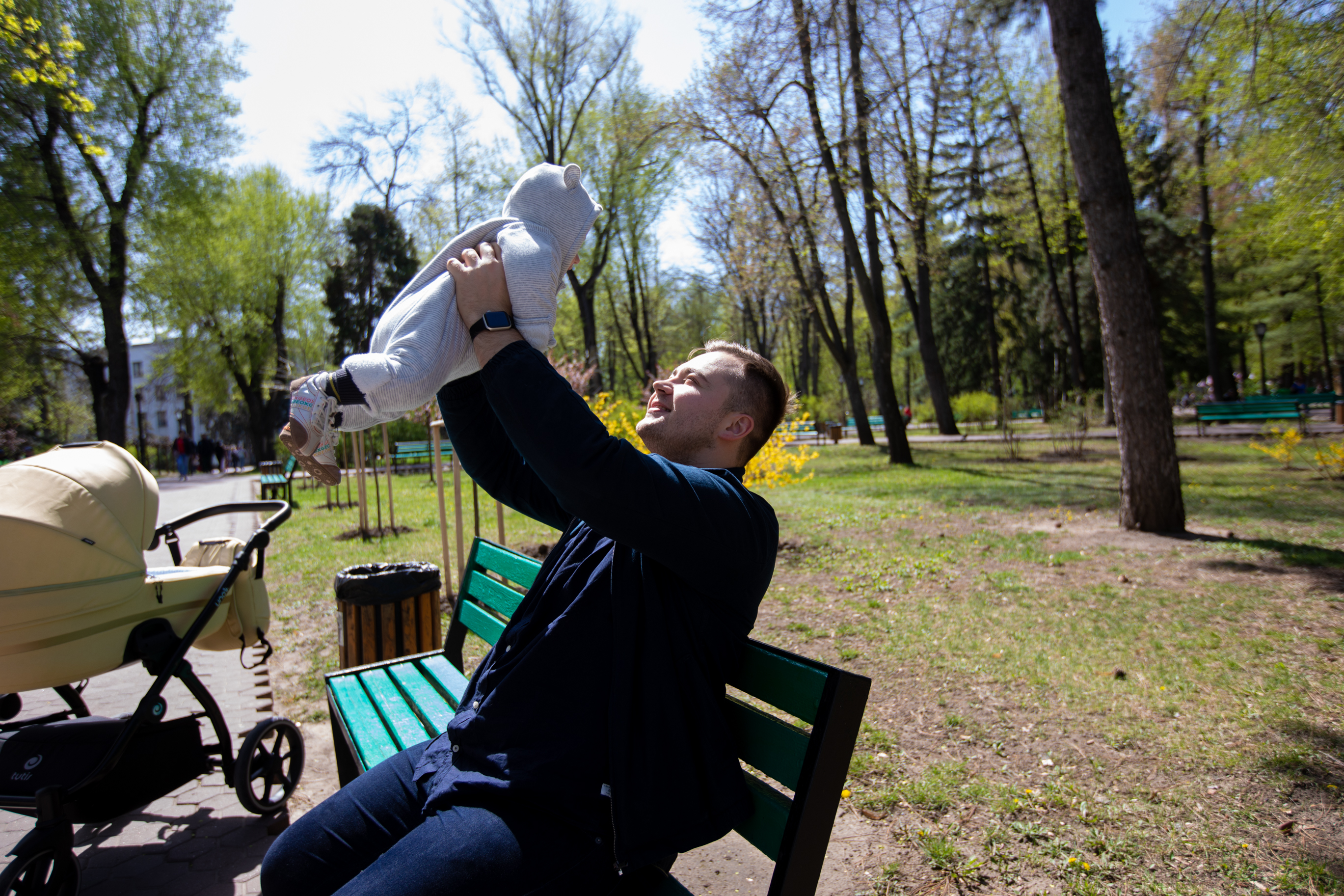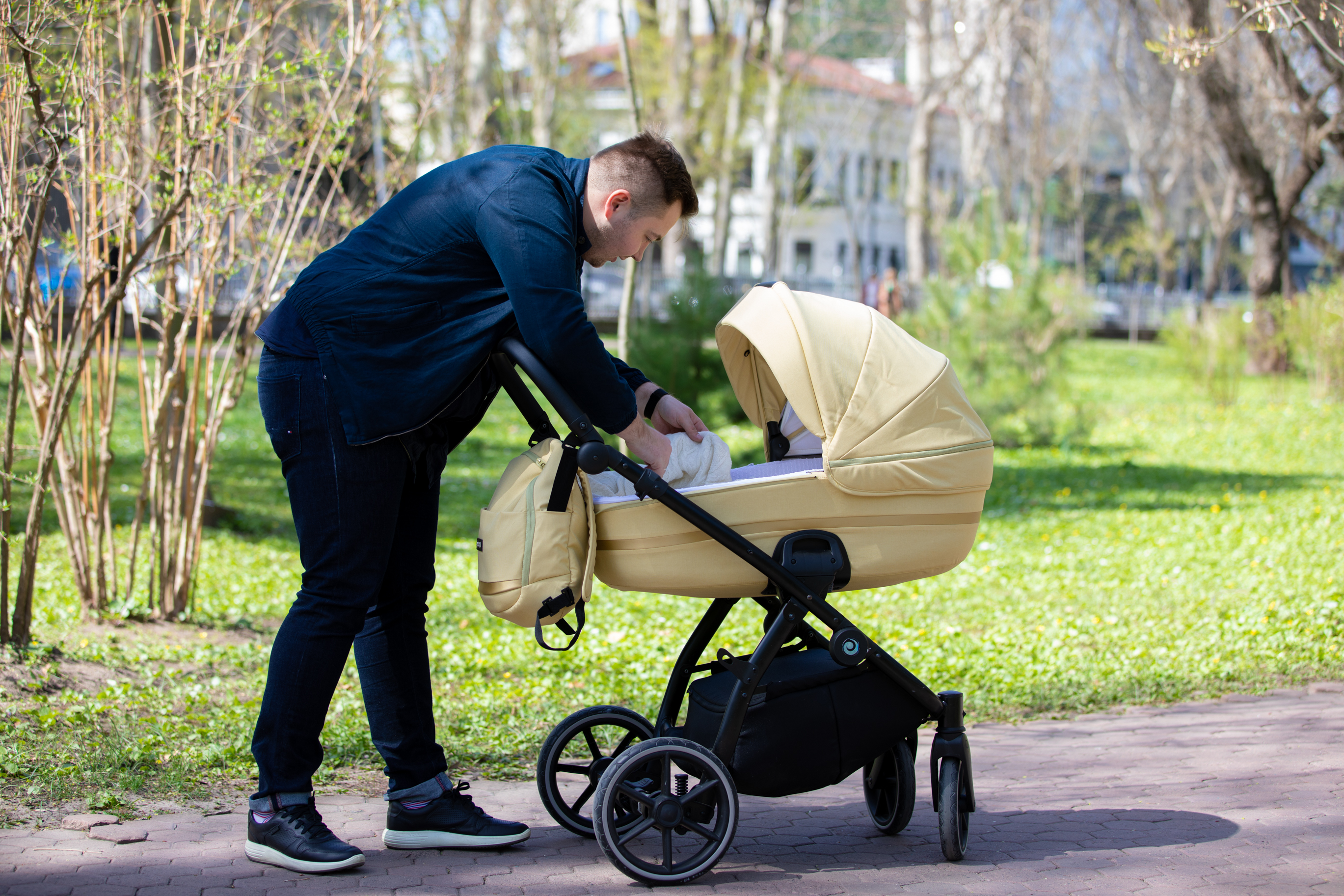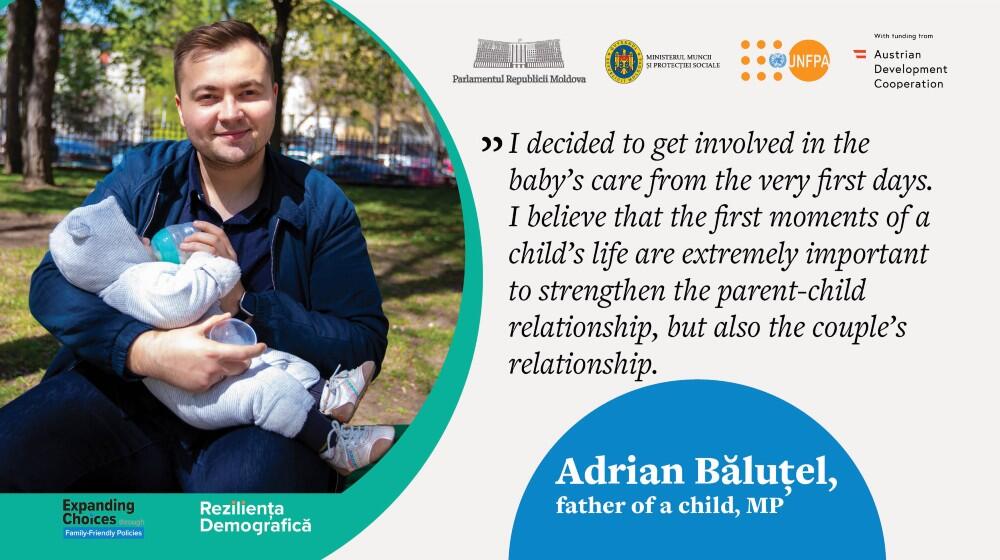The joy of being a parent also includes responsibilities, but any challenge is easily overcome if mother and father are equally involved. Member of the Parliament Adrian Băluțel is 28 years old and is a father of a five-month baby. He is talking with us while carrying Alex on his arms, stating firmly that, regardless of age, occupation or status, the father’s role in child’s bringing up and education is critical. ‘After my son, Alex, was born, things came naturally. I want to be with him in the most important moments of his life, and this means that I have to take part in my baby’s daily care routine’, says Adrian Băluțel.
Enthusiastic and willing to share more facts and details about his life as a father, Adrian says that his rhythm of life changed completely after his child was born, and it became a priority to come home earlier. ‘Before becoming a father I was a free spirit and I had quite a full social agenda. Now, however, almost everything is limited to job duties and coming home before bath time. The only thing that I’ve been doing before and after the baby was born is cooking. It’s a hobby’, he adds.
I’m trying my best to participate in house chores so that my wife has her own time
The young father says that he’s trying to compensate the time spent outside home – he’s doing household chores in the evening and on weekend, so that his wife can have her own time. ‘It wasn’t easy at the beginning, but now, five months after my child was born, I don’t feel tired even when I change diapers during the night. It’s perfect like this. This is my new lifestyle’, says Adrian. Adrian Baluțel also added that: ‘I never thought I would be taking this so seriously, but I’m watching video tutorials about baby development, I’m always looking for new tricks to put my baby to sleep, I’m learning massage exercises and techniques. I’m still discovering myself as a father.’
GGS Data - the first and the largest demographic survey ever conducted in the Republic of Moldova -shows that only 5% of men engage in cooking, cleaning, laundry, with house chores being mostly the women’s responsibility.

More and more fathers know their rights and want to benefit from the paternity leave
In the Republic of Moldova, the father’s right to take a paternity leave is stated in the Labour Code since 2016. The paternity leave lasts 14 days and the baby’s father can benefit from this after applying for the leave at his workplace, within the first 56 days after the child is born. ‘In my work as an MP, I also have to deal with the social protection field, so I knew long time ago about the opportunity to take a paternity leave. However, the first source about the paternity leave that got my attention was a leaflet in the human resources department. I remember I read it carefully’.

According to a legislative initiative registered on May 13th, it was proposed to extend the paternity leave application from 56 days to 12 months, in order to give more flexibility to fathers regarding the period when they decide to benefit from this right.
According to the MP Adrian Băluțel, extending the period for requesting paternity leavehas a significant role in promoting paternity leave as a right of every father and confirms the importance of father's egagement in the new-born care and nurture.
‘The extension of the period of request for paternity leave is very welcome. In the period of 56 days as it was until now, not all fathers were able to exercise this right, it was not enough’.
A longer period for requesting paternity leave acknowledges the good intention of employers and ensures the economic security of the family
‘Probably many men are still reluctant to apply for a paternity leave due to the stereotype that men have to ensure the economic security of the family. But times change, and both women and men are responsible for the family that they created together’, says Adrian.
Once he became a father, the MP took a break from his job to stay with his family from the very first days of the child’s life. Adrian remembers that he received a lot of encouraging words and advice about how to help bringing up the child from men surrounding him who were already fathers, but the most important advice was to be along his wife and baby during the first days after the birth. ‘Many fathers told me that, unfortunately, when they became parents, they couldn’t benefit from a paternity leave, because this right was not offered by law or even worse – it was not a socially-accepted practice that fathers take a paternity leave and spend a month at home with their family’, underlines the new dad.
‘Of course, my son will not remember our first meeting or the fact that we dance to the favourite songs (he is a fan of Zdob și Zdub), but I can see his reaction to my voice. I recently took part in a TV program and he flinched when he heard my voice on TV. He recognised me, and this makes me believe that our tradition of talking to him since he was in his mother’s womb created a special bond between us’.

In 2021, only 16% of fathers received the paternity benefits, as shown in the data provided by the National Social Insurance House.
In its activity, the UN Population Fund (UNFPA) focuses on expanding family-friendly policies at the national legislative level and at the workplace, and cooperates with the private sector to broaden the opportunities for women and men. By its programs, UNFPA encourages men from Moldova to share the childcare responsibilities, to apply for the paternity leave and childcare leave until the age of 3.
"The actions are part of the Expanding Choices project, funded by the Austrian Development Cooperation, and UNFPA's Demographic Resilience Programme, which aims to support the countries in the region to draft demographic policies and programs for people in order to respond to demographic changes, to strengthen human resources and to define a prosperous future."


